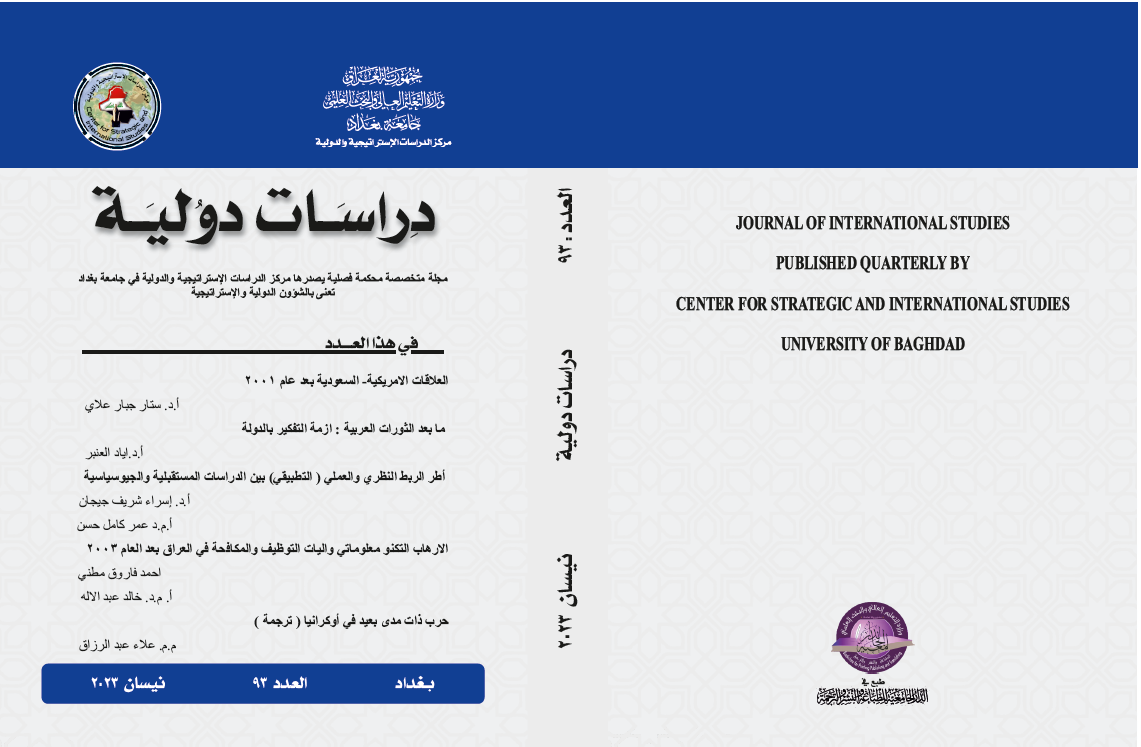Non-state actors and their influential strategies on the transformations of the international system: multinational corporations as a model
Abstract
The international regime's interaction framework is no longer just between states and international organizations. But beyond this, there are many other dimensions and patterns, and there are active forces that are using different strategies to change it. Activities that controlled by the government or transnational boundaries. There are non-governmental organisations (NGOs), transitional corporations, violent groups, and digital actors. Digital actors have become the key to the hard and soft dominance of international units, and NGOs and multinational partners have used them to take these actions. They are the most important factor in international relations.
The resounding breakthrough that multinational partners have made at the borders of states and their growing number and activity as the main producers of goods and services in international trade are clear signs that these partners have become a major and influential player in today's international system and are helping to change it, developing the characteristics and mechanisms of the new global economic order and emphasising its universality. Particularly when considering the political, economic, social, and technological strategies employed by these partners, which have made them an important part of modern wars. This is especially true since the beginning of the 21st century, when economic and technological changes in international relations have been happening faster than their strategic military and geopolitical counterparts.



